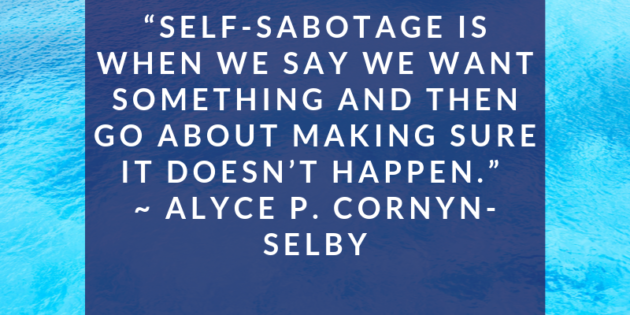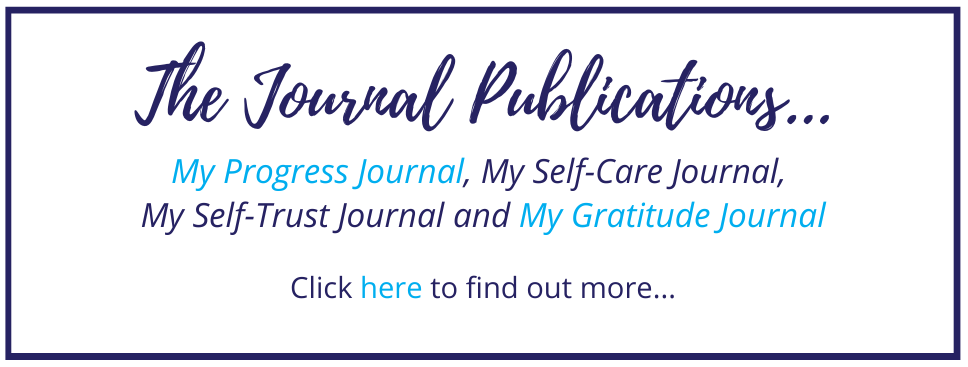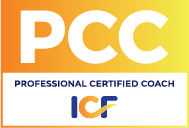Have you ever felt that the world is against you or something is holding you back?
Mmm, what if THAT (out there) was inside of us? What if that voice was inside our head was part of the way we sabotage ourselves (yes not other people) from sharing our gifts with the world and being fully present?
What Is Self-Sabotage?
I am not going to go in to detail about what self-sabotage is as I have written about it before (you can identify what self-sabotage is for you here). However, just so we are on the same page the definition of self-sabotage I will use is – self-sabotage is a combination of thoughts, feelings and behaviours that deliberately stop our self from achieving something or to deliberately prevent a plan (i.e. a goal or intention) or process from being successful (e.g. our life). Self-sabotage is like an inner conflict or tug-of-war (e.g. “I want to do something, but I can’t or shouldn’t”).
“Self-sabotage is when we say we want something and then go about making sure it doesn’t happen.” ~ Alyce P. Cornyn-Selby
Why Do We Self-Sabotage?
One of the best explanations on why we self-sabotage that I have come across is from Gay Hendricks’s book, The Big Leap. In the book, Hendricks’ talks about “upper limits. He says –
“Each of us has an inner thermostat setting that determines how much love, success and creativity we allows ourselves to enjoy. When we exceed our inner thermostat setting, we will often do something to sabotage ourselves, causing us to drop back in to the old, familiar zone where we feel secure.” (p.19).
For example, when things are going well in our lives, we could start to wonder if it is too good to be true. Then because we don’t believe it, we can imagine things to starting going wrong (maybe because we don’t think we are worthy or deserve things to feel this good).
Hendricks’ shares four barriers on why might get in their own way and sabotage their success –
- Feeling fundamentally flawed in some way (i.e. you feel something is wrong with you),
- Fearing others will abandon you or you feel disloyal if you fulfil your potential and are successful,
- Believing that success brings a bigger burden, and
- The crime of outshining (i.e. you don’t want to outshine or make other people due to your success).
You can read more about Hendrick’s upper limits here or in his book here.
What are Some Ways We Self-Sabotage?
There is no one way we sabotage our own success, happiness or wellbeing – there are many ways. The way we self-sabotage can relate to a number of areas including our experiences, memories of the past, beliefs or thoughts about a person or experience, the situation we are in as well as the intention or goal we are trying to achieve. Following are some common ways we can self-sabotage –
- Not finishing projects or what we start (always looking for the next bright shiny object),
- Procrastinating – putting off something that we can do now or doesn’t take us forward to where we would like to be,
- Worrying too much about what other people think of us,
- Making excuses for ourselves (i.e. “I don’t have the time” or “I am not smart enough”),
- Not setting specific intentions or goals in life,
- Not delegating – think we can do everything ourselves,
- Talking about what we want to do and not taking action (i.e. all talk and no action),
- Not taking time out to reflect,
- De-valuing ourselves (not seeing our own worthiness),
- Not being willing to try new things (for fear of failure),
- Make impulsive decisions without thinking about the big picture,
- Not trusting ourselves or thinking other people know more about us than ourselves,
- Spending more money than we earn,
- Eating more food than we need to or in relation to the exercise we do, and
- Trying to implement too many ideas at the one time.
Over to You…
There are many more ways human beings can sabotage their own wellbeing, happiness and success, however these are a good start. The great thing is when we find the courage to look honestly and see clearly in to what we are doing with our own actions and behaviours and ways we are hindering ourselves, we can change it!
If you have any thoughts or comments, please share them below. My sincere hope is that we can all step forward and find the courage to own our worth as human beings.
If you are ready to reclaim your courage and take the next step towards freedom and opening your heart, why not join our Toolkit?
Reference –
Hendricks, G. (2009). The Big Leap: Conquer Your Fear and Take Your Life to the Next Level. New York, USA: Harper Collins Publishers.

















1 Comment
[…] it before (you can identify what self-sabotage is for you here. and more ways we self-sabotage here). However, just so we are on the same page the definition of self-sabotage I will use is […]